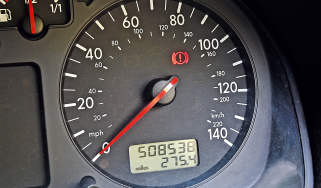Do you have to pay tax when selling a car?
We know cars and fuel are heavily taxed but are there any other hidden taxation issues when selling a car?

The UK government collected more than £7 billion from VED (Vehicle Excise Duty) taxation in 2022-2023, and around £25 billion from fuel duty during the same period. Taxing cars, then, is a huge revenue stream, and most drivers will really feel it in their wallets. But one area of car tax you might not have considered is whether any tax is due when selling your car.
After all, many of us will be familiar with Capital Gains Tax and Inheritance Tax, and in theory, selling an expensive item like a car shouldn’t be much different, should it?
In our guide below, we explain whether you’ll need to pay taxes when selling a car, whether they’re subject to Capital Gains Tax, and what circumstances might result in you having to pay tax when you sell a car.
Do I need to pay taxes when I sell my car?
In short, and as a private individual, no. This will be a blessed relief to most car owners given how much we pay in various other taxes, from fuel – which is subject to both fuel duty and VAT – to VED or ‘road tax’.
But what of Capital Gains Tax, if you happen to be selling a vehicle for a profit? While most cars depreciate, certain desirable models and numerous classic cars have been known to go up in value after a time, while some people who bought a car shortly prior to Covid-19 were fortunate enough that demand for used cars meant they could sell vehicles for more than the price they paid new a year or so later.
Capital Gains Tax applies to possessions worth more than £3,000 from the 2024/2025 tax year (in other words, there is a tax-free allowance of £3,000, similar to the Personal Allowance you get on income tax), which would be less than the profit on a lot of classic vehicles. But in almost all cases, it does not apply to cars, which HM Revenue & Customs consider a ‘wasted asset’, with a short life and, despite evidence to the contrary, an item which is likely to become less valuable over time.
Are all vehicles exempt from Capital Gains Tax?
No. While the majority of private vehicles are exempt from Capital Gains Tax, there are certain types of vehicles for which the tax still applies.
According to HMRC, these include taxi cabs, racing cars and single-seat sports cars, lorries, vans and other commercial vehicles, and unusually, motorcycles, scooters, and motorcycle and sidecar combinations.
With commercial vehicles, this is because Capital Gains Tax does apply on vehicles used for business – essentially, if it goes on your balance sheet at the end of the tax year, then it may be liable, but of course, only if you’ve actually made a gain from selling the vehicle. There’s no hard and fast rule, however, as some vehicles may be classed as machinery, which is also considered ‘wasted assets’. We suggest you consult your accountant if you think you may be liable for Capital Gains Tax on a vehicle used for business.
When do you need to pay tax when selling a car?
If the car isn’t applicable for Capital Gains Tax, then there are only a few instances when selling a car will incur tax. Perhaps the most obvious one is if you are selling cars as a business, in which case, profit generated by selling cars, even in small numbers, will be subject to taxation. If your business is VAT registered then VAT will apply to your activities too.
Another is when a vehicle is used for business and its sale contributes to your profits, though as above, vehicles used for business may be considered wasted assets in certain circumstances. And on the off-chance a car is part of a gift or charity donation, there may be tax implications here, too. Once again, we’d suggest speaking to your accountant if you’re unsure of the tax burden of selling a vehicle.
If you’re a ‘flipper’, not selling cars as your main source of income but still buying and selling them fairly regularly for a profit, then you’ll often see the figure ‘12 cars a year’ thrown around as being within the range of a private seller – though HMRC makes no official statement to this effect. If you’re making significant money from selling cars, even if it’s under this unofficial threshold, it may still be wise to declare this, and pay tax on any profits, lest you one day attract attention from the taxman.
Can I sell my car with no road tax?
Yes. You can sell a car without any ‘road tax’ or VED, and indeed this has become easier since VED no longer carries over for the entire period after you sell a car – in other words, “six months’ tax” is no longer a selling point, as tax ends as soon as you contact the DVLA to transfer a car to a new keeper. You should also receive a tax refund cheque from the DVLA on any period of unused tax.
The UK government collected more than £7 billion from VED (Vehicle Excise Duty) taxation in 2022-2023, and around £25 billion from fuel duty during the same period. Taxing cars, then, is a huge revenue stream, and most drivers will really feel it in their wallets. But one area of car tax you might not have considered is whether any tax is due when selling your car.
Frequently Asked Questions
This is a grey area as there’s no official point above which an individual is considered a car trader. But whether flipping cars is a hobby or your main source of income, HMRC may consider it undeclared income if they discover you’re making a significant profit from selling cars.
Did you know you can sell your car with Auto Express? Get the highest bid from our network of over 5,500 dealers and we'll do the rest. Click here to try Auto Express Sell My Car now...









